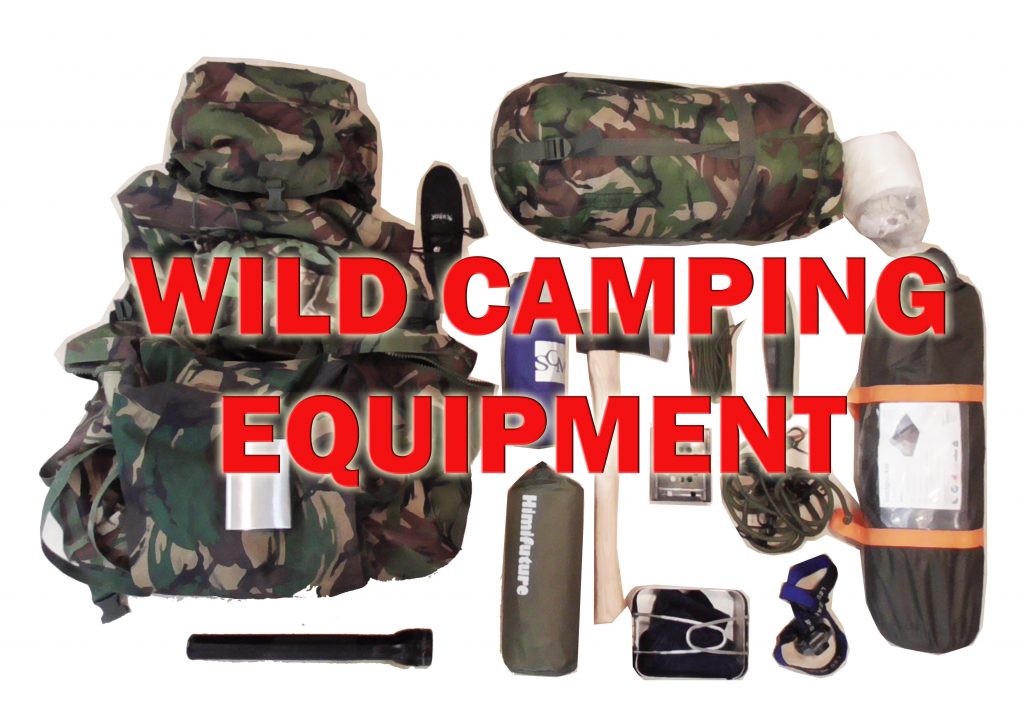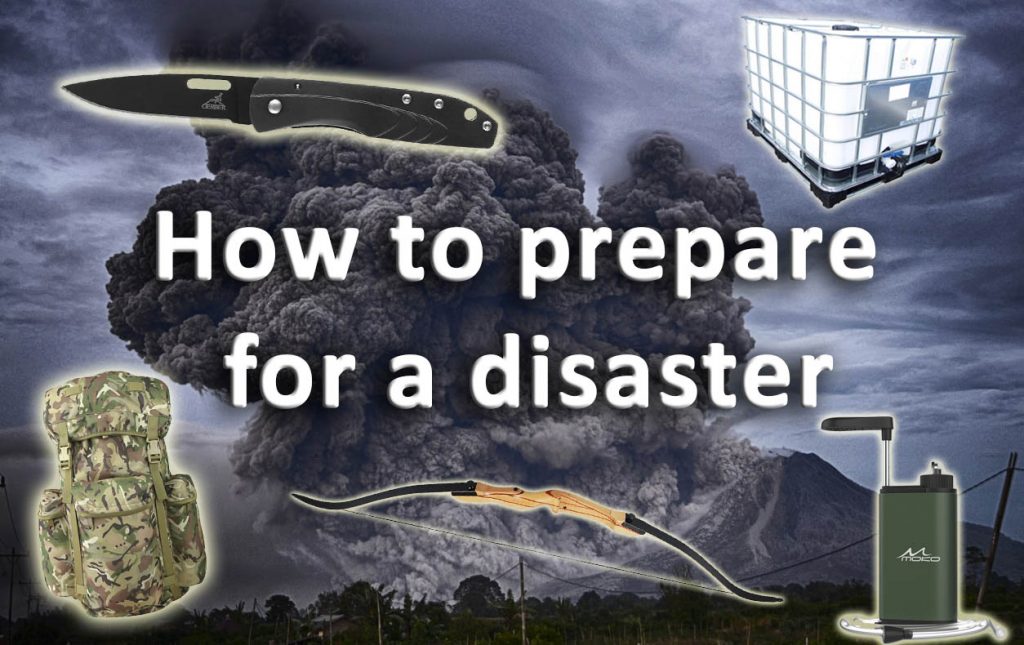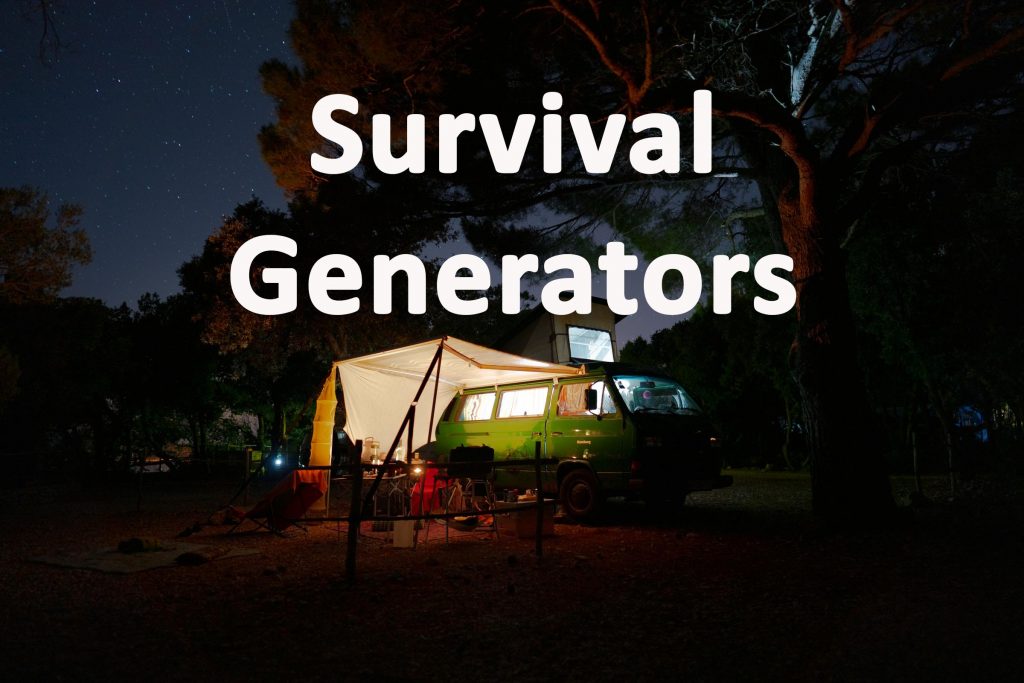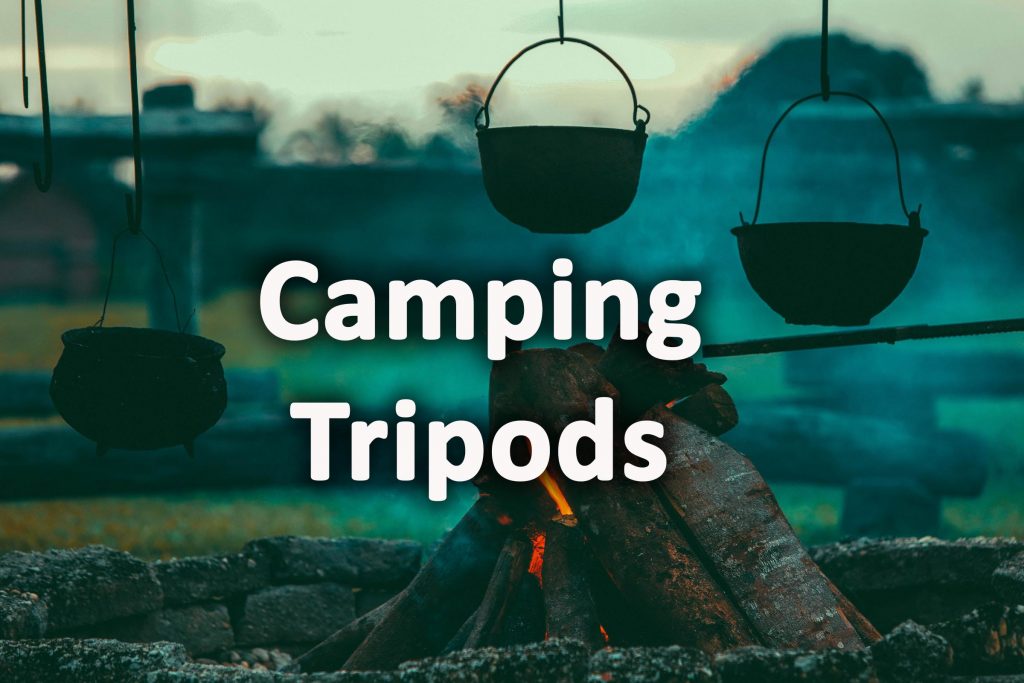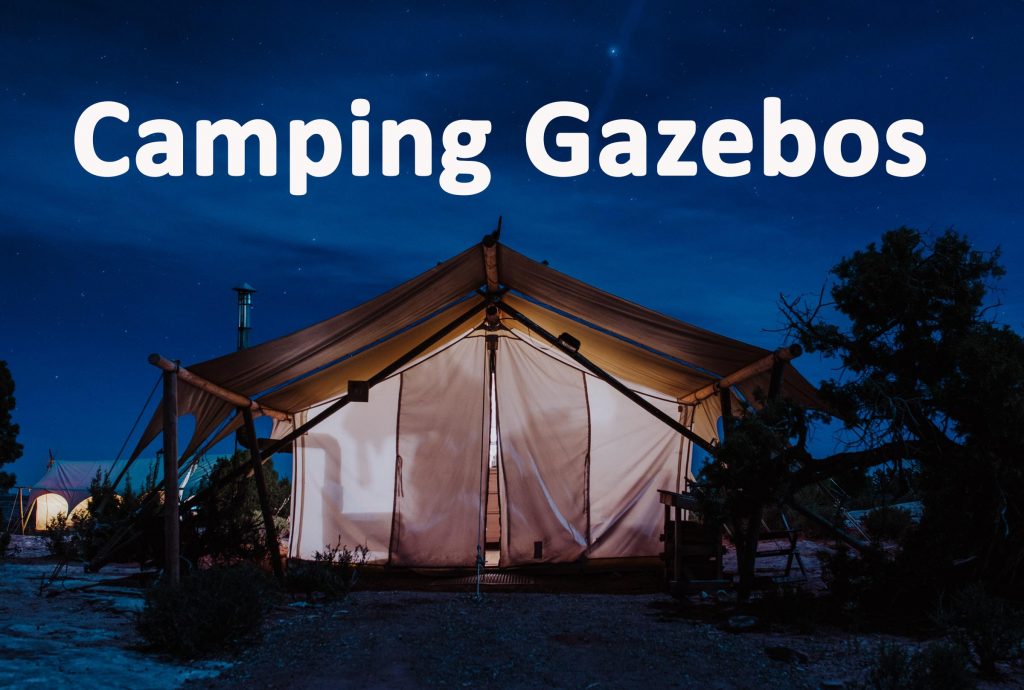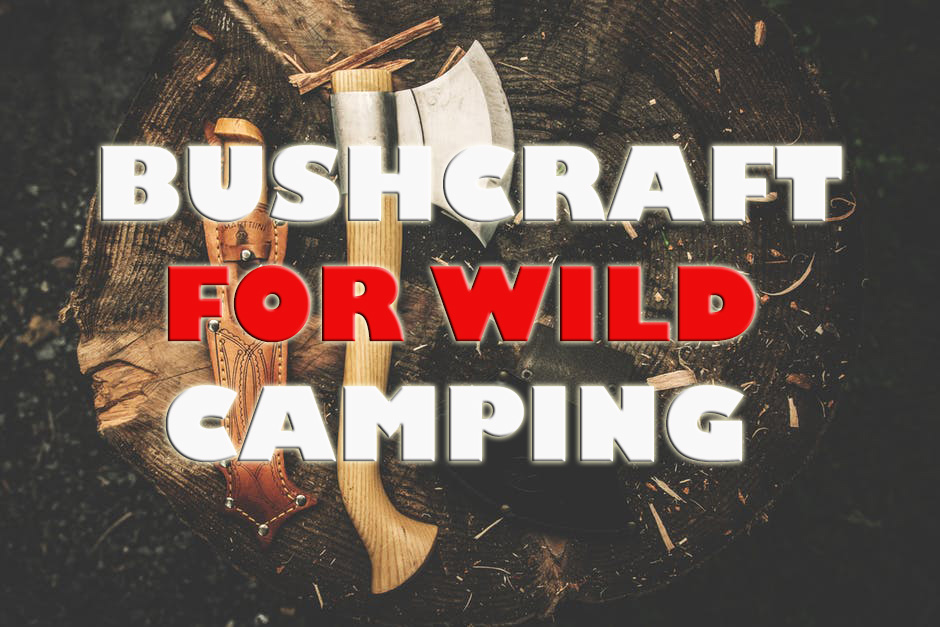
Bushcraft wild camping
This is a discipline combining skills and crafts using natural materials to aid wilderness survival. Bushcraft wild camping seeks to utilise nature to survive in harmony with the wild landscape. The bushcrafter must work with nature and leave no trace of his presence.
There is no surprise bushcraft fits perfectly with camping or more specifically bushcraft wild camping! This art facilitates staying within woodland or wild places comfortably for the enjoyment of nature. A common focus of bushcraft is the establishment of wild living quarters. Such bushcraft camps become a base for other wilderness, survival activities.

Hunting, foraging, fishing cooking and experiencing a hunter gather existence is at the very core of bushcraft camping. This craft represents explores human lifestyles for the past hundred thousand years before farming become established. This hunter gatherer lifestyle can still be seen in wild tribes across the planet today. It has been theorised therefore that people are drawn to bushcraft as it triggers primeval reflection to our evolution as a species.
The fundamental activities of bushcraft represent the only way human beings can survive sustainably with the natural world without the destruction of natural ecosystems.
For this reason the development of bushcraft skills is the purist form of experiencing nature.

Why is bushcraft important?
Modern living has provided humans with an easy, protective capsule in which to exist. We are cushioned from physical, skilled activities such as building shelters, hunting and foraging. A modern, world economy intoxicated on cheap, fossil fuel energy has rendered such skills unnecessary.
Many would look at technological advances in recent times as a triumph of humanity! But is the past one hundred years of human modernisation really a success? Has capitalism therefore really turned out to be the engine of improvement for all our lives?

If so then why are so many people on the planet still poor? Natural wilderness cleared to supply cheap food to rich faraway lands? Ancient tribal communities evicted from their homes only to be imprisoned by low wage economies.
Oceans choked with pollution, mass extinction and toxic air reducing our life expectancy. The rich continue to get richer and the poor are ever getting poorer. But surely the majority of people in western countries have a better standard of living? Is it not consequently the case that when poor countries develop standard of living improves?
Modern living is not sustainable!
Observing rich western countries such as North America and Europe I would expect to see prosperity and happiness right? It has to be noted that these countries have increasing modern problems of epidemic proportions. Obesity, inequality, division, family breakdown and deteriorating levels of mental health are just some of the problems western society faces. So it has to be asked where has it all gone so badly wrong?

Quite simply in nature sustainability has always been linked directly to natural balance. Consequently if a species lives beyond the resources their environment provides eventually their population will deteriorate. Even intelligent scholars seem to ignore this fact thinking we are above the fundamental laws of nature! With the world population approaching nine billion it could be mistaken that this is somehow a sustainable situation.

It terrifies many people to learn food they eat is not the result of natural soil fertility. Crops today rely on synthetic fertilisers made from fossil fuels for nutrients. Machinery which powers modern agriculture and the chemicals which package it are running out. Oil will run out one day, when it does consequently no amount of technology will save humans from starvation.

Is bushcraft fundamental for human survival?
The truth is many of our modern, economic systems are extremely fragile. Cities are so densely populated that an overnight cut of food, electricity or water would be fatal. People would steal, loot and murder for what resources are available. Most human populations across the world without modern infrastructure would simply become extinct.
In the inevitable scenario our modern oil fuelled economies would collapse only some humans could survive. Only people that live sustainably with their surrounding landscape for food, water and shelter would have a chance.

Small, rural self sufficient farming communities out of roaming distance of hungry mobs could survive. Indigenous tribes in remote parts of the world would not only survive they would no longer face deforestation and eviction! This leaves one other group, survivors of modern economies who are experts in bushcraft survival.
Members of the population who make it to remote, wild locations who can implement bushcraft will survive.

Can bushcraft camping be good for us?
Whether bush craft camping can help us survive the apocalypse or not any time soon is up for debate. There is a hint however that practicing activities like bush craft camping in wild environments could actually be good for us.
Spending time in wooded and wild environments should be something that is familiar for human beings. Why we have created boxed environments densely grouped together for living in is a mystery to me. I have a suspicion therefore that human greed is the main cause of such confinement. It has been observed that animals in bleak, confined zoo enclosures show obvious signs of mental illness.

Repetitive behaviours, aggressiveness and depression are all displayed by animals in these environments. It sounds like many people I experience regularly with densely populated cities!
To me it is obvious that humans should be exposed to wild expansive wild environments every day. This is how we evolved! There is now countless evidence and cases which show wild places cannot just prevent mental illness but reverse it.
Studies have shown that people recovering from illnesses recover faster when they are in view of natural features. Seeing trees, plants, wildlife and lush green landscapes can reduce stress and evoke emotions of joy.

Getting back to nature
The wilderness foundation is a charity backed by the UK’s Prince Harry. The charity does extremely valuable work working with young people suffering from mental illness. Young people who have traumatic experiences like losing parents are taken for wild experiences across the country. In many case studies this charity discovered some remarkable results from their work.

One young man had not spoken in over two years after severe emotional trauma. Exposed to days of trekking and camping in wilderness environments he became responsive to others. This particular young man went on to make a full recovery. looking to nature for medicine and spiritual fulfilment is something tribes have practiced for millennia. Regardless of circumstance the natural world has a way of inspiring, encouraging and exciting us. This can heal many of the stresses modern life throws our way.
Whether you are new to bushcraft, survival, or wild camping living within nature is the savour of our souls.
Bushcraft is a vessel for discovering the real human condition in the world. By experiencing raw nature we can subtract negative symptoms of human greed though our destructive systems. Living in harmony with the natural world is the only way to solve all human dilemmas.

Where can you practice bushcraft?
Bushcraft can be practiced in any place where land owner’s permission is granted. There are however an expansive range of activities which come under the activity of bushcraft which should be discussed.
Bushcraft camping
Many bush craft enthusiasts wish to practice their trade to ultimately facilitate a wild camping experience. Many famous survival shows such as Survivor man, Bush Tucker Man and Ray Mears focus around this. Wild camping can allow you to experience nature in a way like no other activity. In the UK you can only legally wild camp in Scotland or Dartmoor without permission.

Of course you can also camp any where you have formal consent. To step this up a gear I would say camping in remote, wild places out of range of people is not going to hurt anyone. True bush crafters always leave wild places as they find them. The problem starts when people litter and cause disturbance to people, livestock and wildlife. Wild camping completes the ultimate bushcraft experience! I would politely ask permission or even pay for the peace of mind you are not committing an offence.
Never camp anywhere where there are ‘do not trespass’ signs.
There are now many bush craft schools and courses where you can access land for such bushcraft activities. Here are some links:
https://www.raymears.com/Bushcraft_Courses/
https://www.wildwaybushcraft.co.uk/
https://www.survivalschool.co.uk/survivalskills/bushcraft-courses/

Woodland Bushcraft
Some of the most technical skills and crafts of bushcraft is working with natural timber. Some of these include den making, carving bow drills, cups, eating utensils and tools. Technically cutting any wild tree or plant in protected areas, especially in the UK is not allowed. Any woody material on privately owned land is technically someone else’s property and should not be tampered with.

Much of these pointers are simply not relevant to countries with expansive wilderness. Countries such as the USA and Australia do not have such strict rules when it comes to woodland bushcraft. If you do live in the UK I would simply say you need to apply common sense. Hacking down trees and cutting up large amounts of woody material is obviously wrong. Selecting dead branches and sticks on common land for some family fun and bushcraft is not unruly in my opinion.
Woodland bushcraft is at the very heart of survival crafts and experiencing nature. Having permission for these activities is always best but applying common sense and respect you should not fall into the wrong. On balance I believe everyone should be able to access and enjoy wild places. If practicing woodland bushcraft always remember to never leave a trace of your presence.

Wildlife watching
Wildlife watching and bird watching can be a fantastic way to enjoy and experience wild places. These activities can also compliment bushcraft! Positioning yourself within the landscape to view rare wild animals is a skill in its own right. To master these skills requires knowledge of wild animals and evading their acute senses. With spending hours hidden within wild areas it’s no surprise wildlife watching can go hand in hand with bushcraft wild camping.

It is interesting to point out that I know of no harsh laws even in the UK to prevent wildlife watching and filming. Seeing as this sometimes requires days of continuous hiding I wonder at what point this becomes technical camping? Well at least this could give a legal excuse anyway.
Stalking
Stalking is an activity commonly associated with hunting it does not however have to be. Many wildlife enthusiasts use this skill to get as close as possible to secretive wild animals. This can be a rather tricky skill to master and is one of the earliest forms of survival practiced by the human species. Stalking can be a fun way to experience wild places and a fantastic activity to accompany bushcraft wild camping.

Tracking
This is the art of learning the tell tale signs animals and people leave behind them when travelling through the landscape. Tracking is most commonly associated with recognising animal foot prints in soft ground. This activity can also include landscape analysis to predict movements of target subjects. An experienced tracker will be a master of locating more subtle impacts in the environment. Animal scat, compressed vegetation and broken twigs are just some examples of subtle signs trackers can read.

Tracking is one of the first skills humans developed during our evolution and is still practiced to this day. For this reason tracking really can be an excellent activity to accompany bushcraft activities.
Hunting
Hunting is a past time enjoyed by many people across the globe and for good reason. Many modern day tribes as well as our ancestors hunted animals for food. Being so fundamental to our past survival it is no wonder it remains a popular sport today. With the current mass destruction of biodiversity across the world hunting has become a controversial topic for many. On a personal level I believe we should conserve large, rare, game animals and even re-wild areas not fit for agriculture.

In terms of bushcraft or survival skills I see no problem with harvesting small game as long as it is humane. The level to which hunting laws and managing practices vary much from country to country. It is important that you always comply with your local rules and procedures when hunting. Hunting especially in extreme wilderness can be a thrilling experience on bushcraft camping expeditions.
Fishing
Fishing is an extremely enjoyable past time for those that love the outdoors. Sitting patiently for hours on end surrounded by nature has been compared to spiritual meditation. It is no wonder so many find this activity deeply relaxing and enjoyable. When it comes to bushcraft survival the intention of fishing is to feed you. Whether or not you can keep the fish you catch however depends on your local laws and regulations.

In the UK fishing fresh water for food is not allowed with even hobby fishing highly regulated. You can become a paying member of stocked lakes where you can keep the fish you catch. Sea fishing in the UK does allow you to keep what you catch. For this reason many bush craft camping takes place on rural beaches and wild shorelines. In many other countries fishing laws are less strict. Bush craft expeditions combined with fishing can be extremely enjoyable.
Foraging
Foraging is the application of plant and fungi identification to collect wild food which is safe and often delicious to eat. This activity can also extend to the collection of creatures such as snails and shellfish for food. The art of foraging can only be mastered with an in depth and thorough knowledge of local flora.

It must be recognised that the picking of rare wild plants can be illegal in many parts of the UK. There are however many common wild plants such as Dandelions and Plantain which are readily available. Not only are many wild plants good for food they are extremely medicinal. Foraging can lead to a vast and impressive knowledge of local wild plants which is becoming increasingly rare in developed nations.
Mushroom foraging requires an in depth, wealth of information all of its own. This rather seasonal way of collecting wild food can be exceptionally productive especially whilst survival, bushcraft camping. Foraging for wild mushrooms requires exceptional knowledge especially due to the fact some are fatal if eaten.

Foraging a lost knowledge
Poisonous mushrooms can sometimes look very similar to edible varieties. This means when mushroom foraging extreme caution and knowledge should be applied. If you are ever in doubt on the identity of any mushroom or plant not eating it is the only option. Having said this if you are prepared to study the subject thoroughly you can expect to enjoy the very best nature provides. There are many great learning resources available to help you become an expert mushroom hunter.
It is also possible to forage for slow moving creatures for food if you know what you are looking for. Not exactly the first choice of many but snails, frogs, fresh water fish shrimps and shellfish can all be collected for food.

Foraging for these readily available wild foods can become powerful survival tools when bushcraft camping. Learning and practicing foraging can be extremely fun and rewarding not to mention appetising! Who knows you may even be the one to survive an apocalyptic event if ever it may occur.
For more information on the art of foraging there is a good book here.
Cooking
Cooking is one of the great joys of bushcraft whether having gathered your own wild food or brought your own with you. There are many different methods of bushcraft cooking you may or may not utilise depending on your specific camping arrangements.
Some of the first images the mind creates when envisaging bushcraft cooking is freshly hunted meat skewered over a Smokey woodland fire. This is therefore a bushcrafters paradise representing a tribal way of eating going back millennia. This kind of bush cooking has been celebrated by Ray Mears popular ‘Bushcraft’ television series. Being able to reproduce this type of woodland cooking will depend on if you can actually start a fire. Making fires for bushcraft wild camping will be discussed in the section below but there other options.

Stoves are a very useful and quick way to boil water and cook food. They can be used to barbecue, grill, fry and even steam camping meals. Bushcraft wild camping enthusiasts usually prefer more wood and stick fired options. I prefer the simple Petromax stick burning stoves which back down very small and burn extremely hot. There are many stoves and camping grills which can be used in bushcraft camping I have put some links to some useful ones on Amazon at the end of the article.
Fires
Fires are never really a huge problem in countries with excessive wilderness areas. It must be stressed however that fires should be avoided in hot arid, densely vegetated areas. If you do have fires in these conditions extreme care should be taken to prevent forest fires. In the UK and Northern Ireland you can only have a fire with permission of the land owner. Fires are allowed in Scotland but it is recommended to use stoves. There is nothing better than having a genuine bushcraft camp fire but you should always follow some important tips.

Try to only have fires during the winter when they are needed for warmth. Fires should be avoided in summer at all costs as a simple spark can soon turn into an inferno. If fires are built the surrounding ground should be completely cleared of soft, leafy material. You should excavate a bowl type formation in the ground with loose soil heaped around the edges. When the fire is finished water should be poured over and the soil back filled to smother the area.
Camp fires are a great way to experience an authentic bushcraft experience. Fires must be built legally and with the upmost caution and care.

The future of bushcraft
There is no doubt that the world is becoming more populated and more urban. Never before have human beings been so separated from the natural elements of wilderness which gave rise to our evolution. It is becoming blatantly obvious that human beings are becoming victims of our own success. We live in a world with record levels of childhood obesity and sickness from polluted air. Many are plagued with mental health problems and suffer premature death from preventable conditions. Our modern, urban lifestyles have entrapped us in a soulless cycle of giving all our time to pay bills.

The truth is nature has the ability to reverse much of these effects of modern living. Through bushcraft and wild camping activities we can reconnect with nature in its purest, rugged form. Sitting with friends around a campfire, waking up to forested valleys and climbing mountain peaks. Inviting wild nature back into our lives can heal us again and bushcraft can get us there!
Basic kit for bushcraft camping
Bushcraft wild camping is a thrilling, magical experience but can be challenging and tough. In order for you to access wild places and live with relative comfort it is important you have the correct kit! One of the most important factors when selecting the correct gear is weight. Bushcraft camping equipment must be refined and minimal. Excess weight should be avoided, mastering your kit so it is portable and practical is a large part of successful bushcraft wild camping. Below I have listed the main categories of essential equipment with links to some favourite gear. Alternatively read our article on wild camping equipment here.
Bergen’s
Bergen’s are one of the most important parts of the bushcrafters kit. It houses all of your equipment in a manageable and portable way. There are many types of Bergen available and the one you choose should be the one that is most suited to your gear. We have put some popular Bergen’s for bush craft wild camping found on Amazon below.
Bushcraft camping bergen’s on Amazon
Tarps
Tarps are essentially waterproof sheets which have attachment hoops to the corners and sides. This allows tarps to facilitate a variation of shelter providing orientations. Tarps give you the opportunity to create weather proof areas outside in the wild. We have put together some links to favourite tarps here.
Bushcraft camping tarps on Amazon
Tents
Tents are our favourite way to camp out in wild places. Their closed environment allows for a warm, sealed environment out of the extremes of weather. Generally bushcraft wild camping prefers building shelters from natural materials. This however is not always possible with tents providing the next best thing. Bushcrafters usually prefer light, small inconspicuous tents for wild camping.
Bushcraft camping tents on Amazon
Hammocks
Hammocks are a light, quick and convenient way to go bushcraft wild camping. The non hassle system of simply harnessing up a hammock between two trees is invaluable when needing a quick set up. With hammock camping you will need a tarp suspended above the hammock itself with either bungees or para cord. Hammocks are great for wildlife watching and enjoying expansive views. Hammocks can unfortunately become quite exposed however to cold winds. Hence it is important to include a reflective mat to your camping hammock. Ultimately here are many camping hammocks to choose from we have included some good examples below.
Bushcraft camping hammocks on Amazon
Axes
These are a favourite tool of bushcraft wild camping enthusiasts. Axes can be used to chop up fire wood and delicately carve out wooden tools. In survival expeditions axes can also be used for defence and preparing hunted meat. We have put some examples of good axes here.
Knives
Knifes are essential in bushcraft and wild survival camping. Knifes are probably one of the most used bushcraft accessories. These knifes are used for making fire sticks, chopping wood, carving, cutting cord, butchery and eating. Beware when carrying knives when you are out camping. Know the law and try not to commit a criminal offence by carrying a knife.
Stoves
Stoves are an essential piece of bushcraft wild camping kit they allow you to boil water and prepare food. Most bushcrafters prefer an open camp fire with tripods and stick skewers for cooking. This is however not always an option especially when stealth camping. Stoves give you a quick and easy way to heat up food and water. My personal favourites are foldable stick burning stoves. We have put some good examples of camping stoves below.
Further reading
There is always so much extra information when learning more about bushcraft wild camping. There is therefore some great books on this subject as well as other educational resources. We have put together a selection of these for you below.
Courses
To learn about bushcraft survival there is only really one way to get experience and that is to get outside! One of the best ways to get started is to go on an accredited course. There are campsite based courses as well as digital courses you can buy online. We have put some links to some recommended courses below.
https://www.raymears.com/Bushcraft_Courses/
https://www.wildwaybushcraft.co.uk/
https://www.woodland-ways.co.uk/
Useful links
Thank you for reading our article on bushcraft wild camping. Did it help you in your search? If so why not pin it or share it with your friends? This really inspires us to keep writing helpful content in the future. Thank you again from Stealth Camping UK.
http://www.thebushcraftcompany.com/
‘As an Amazon Affiliate I earn from qualifying purchases’











